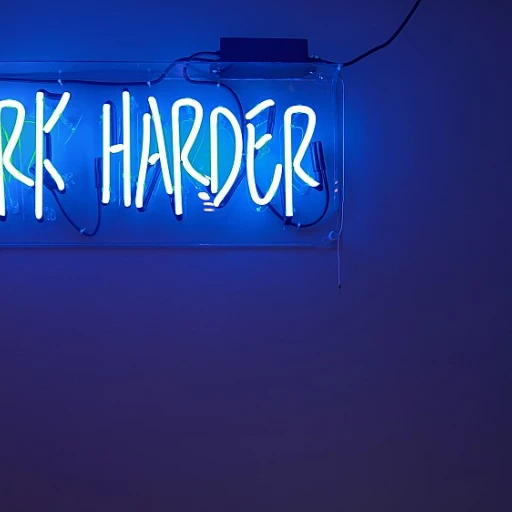
How warrants interact with modern background checks
Many people ask whether a warrant will show up on a background check when they apply for a job or rental. In practice, the answer depends on the type warrant involved, the court that issued it, and how different records systems communicate with each other. Understanding how warrants appear background reports helps any individual make informed legal and personal decisions.
Most routine employment screening focuses on criminal background information that courts and law enforcement agencies share with national databases. If a criminal warrant has been properly issued and entered into those systems, it often will show in background checks that include a broad records search. However, some civil warrants or traffic warrants may only exist in local court records and might not automatically show background reports ordered by distant employers.
When a court issues an arrest warrant, law enforcement usually enters it into a regional or national enforcement database. That arrest warrant can then appear background checks that include criminal records, especially for sensitive roles in finance, education, or healthcare. By contrast, a civil warrant related to unpaid debts or a landlord dispute may stay within civil records and only surface when someone performs a targeted court records search.
Because there is no single global database, warrants issued in one jurisdiction do not always appear background reports in another. Some employers only request limited background checks that focus on convictions rather than open warrants. Others, especially in security conscious sectors, ask screening providers to check warrants and broader criminal background data before making hiring decisions.
Types of warrants and how they may appear in checks
To understand whether a warrant will show up on a background check, it helps to distinguish the main categories. A criminal warrant, such as an arrest warrant or search warrant, usually relates to alleged violations of criminal law and attracts more attention from law enforcement databases. A civil warrant, by contrast, often arises from disputes over money, contracts, or property and may remain within civil records unless a specific court search is performed.
A bench warrant is commonly issued when an individual fails to appear in court or ignores a court order. Bench warrants show in many criminal background checks because courts treat them as active enforcement matters, even if the underlying issue began as a minor offence. Traffic warrants, which can result from unpaid fines or missed hearings, may or may not appear background reports depending on how the local court classifies them and whether the jurisdiction shares those records widely.
Some regions also recognise a fugitive warrant, which allows law enforcement to detain someone who has fled from another area to avoid prosecution. Fugitive warrants issued in serious cases are more likely to appear background checks that draw from national enforcement systems. However, not all warrants issued in smaller courts are uploaded consistently, so warrants appear unevenly across different commercial databases.
For people concerned about employment, it is important to know that many employers rely on third party screening firms that tailor background checks to the role. A basic check might focus on convictions and ignore older civil warrants, while a more detailed criminal background review could include active warrants issued by any court that reports to national systems. Anyone facing this situation should also understand how misdemeanours are treated, and resources explaining whether misdemeanours appear on background checks can provide useful context.
How courts, law enforcement, and databases share warrant information
When a court decides that a warrant issued is necessary, the clerk typically records it in the official docket. Law enforcement then receives the warrant and, in many regions, enters it into a shared enforcement database that supports both local and national searches. This process is central to whether warrants show in commercial background checks that rely on aggregated criminal records.
Criminal warrant data often flows from municipal or regional courts to state or national repositories, but civil warrants may follow a different path. A civil warrant related to unpaid rent, for example, might stay within a single civil court system unless a creditor or screening company performs a direct court records search. As a result, civil warrants issued in one town may not appear background reports ordered in another, even when the same individual is involved.
Law enforcement agencies also vary in how quickly they update records when a warrant is cleared, quashed, or resolved. If a bench warrant or traffic warrants are recalled, the court should notify law enforcement so that the criminal background entry is updated, but delays sometimes occur. That lag can cause a warrant issued months earlier to still show background reports even after the legal issue has been settled.
For people checking their own history, it can be helpful to review local court portals, request a copy of any criminal background file, and, where available, consult county inmate or warrant lookup tools. Guides explaining how to access regional data, such as how to access Alachua County inmate information for background checks, illustrate the practical steps involved. These methods complement broader background checks and help an individual verify whether any type warrant still appears in official records.
Employment screening, landlords, and other common background uses
When people ask whether a warrant will show up on a background check, they usually worry about employment or housing. Employers in regulated industries often request comprehensive background checks that include criminal background searches, verification of identity, and sometimes civil records related to fraud or financial misconduct. Landlords, by contrast, may focus on eviction history, basic criminal records, and any civil warrant that suggests repeated non payment or property damage.
In many hiring processes, a screening provider compiles information from multiple sources, including court records, law enforcement databases, and public registries. If a criminal warrant or fugitive warrant is active and properly reported, it will likely show background reports ordered for positions involving vulnerable people, financial authority, or access to sensitive data. Some employers also ask vendors to check warrants specifically, especially when the role involves driving, handling cash, or representing the company in legal or regulatory matters.
However, not every background check is equally detailed, and some employers limit the search to recent convictions rather than open warrants. In those cases, a bench warrant or traffic warrants might not appear background reports unless the screening company includes that jurisdiction in its standard court search. People concerned about how their history looks to employers can also review guidance on whether a background check can reveal employment history, since work records often interact with criminal background findings.
Outside employment and housing, other organisations also rely on background checks, including volunteer groups, licensing boards, and some educational institutions. Each organisation chooses how deeply to search warrants issued by courts and how to weigh civil warrants versus criminal warrant information. Understanding these differences helps any individual anticipate when warrants appear background reports and when they remain confined to local legal files.
Checking your own records and addressing outstanding warrants
Anyone uncertain about whether a warrant will show up on a background check should start by checking their own records. Many courts now offer online portals where an individual can perform a name based search for both criminal and civil records. These tools often reveal whether a bench warrant, civil warrant, or other type warrant remains active in a particular jurisdiction.
In addition to court systems, some police departments and sheriff offices provide online check warrants tools that list active arrest warrants and traffic warrants. Because law enforcement maintains these lists for operational reasons, they can be a reliable way to see which warrants issued are still considered open. If a criminal warrant or fugitive warrant appears, it is important to understand that law enforcement may act on it at any time.
When people find that warrants appear in their records, they should seek qualified legal advice rather than ignoring the issue. A lawyer can explain how a warrant issued by one court might affect background checks in other regions and whether it is possible to quash, recall, or resolve it. In some cases, especially with older civil warrants or minor traffic warrants, courts may allow payment plans, alternative arrangements, or even dismissal once the underlying obligation is met.
After resolving any outstanding matter, individuals should confirm that the court has updated its records and notified law enforcement where necessary. This follow up helps ensure that a cleared criminal warrant or bench warrant no longer shows in future background checks. Periodic self screening, using both official court searches and reputable commercial background services, can then verify that no outdated warrants show background reports.
Limits, errors, and privacy issues in warrant reporting
Even when a warrant will show up on a background check, the information may not always be complete or perfectly accurate. Data entry mistakes, delays in updating records, and mismatched identities can all cause warrants appear in the wrong file or remain visible after they should have been removed. These problems highlight why both employers and individuals must treat background checks as important but fallible tools.
For example, if a court recalls a civil warrant or resolves a bench warrant, the clerk must update the docket and notify law enforcement. If that step is missed or delayed, a criminal background database might still show background entries that suggest an active warrant issued against the individual. Similarly, when multiple people share similar names or birth dates, a search warrant or arrest warrant belonging to one person can mistakenly appear background reports for another.
Privacy rules also shape how much information about warrants issued can be shared with employers, landlords, or the general public. Some regions restrict reporting of older civil warrants or minor traffic warrants, especially when they do not involve ongoing safety risks. Others limit how long certain criminal warrant data can appear background checks, particularly when the underlying case ended without a conviction.
People who find incorrect information should use formal dispute processes offered by background screening companies and credit style reporting agencies. By providing court documents that show a warrant issued has been cleared or that a civil warrants entry belongs to someone else, they can request corrections. This careful approach respects both the role of law enforcement and the rights of individuals to fair and accurate reporting.
Deep trends in warrant reporting and what they mean for individuals
Current background check trends show a gradual expansion in how courts and law enforcement share data about warrants. More jurisdictions now digitise both criminal and civil records, which increases the chances that a warrant will show up on a background check ordered far from the issuing court. At the same time, regulators and privacy advocates push for clearer rules on how long warrants appear background reports and how to handle minor civil warrants.
Employers increasingly rely on automated screening tools that can check warrants across multiple databases in seconds. These systems can flag a criminal warrant, bench warrant, or fugitive warrant quickly, but they also raise questions about context and fairness when warrants issued have not yet been tested in court. Responsible employers therefore combine automated criminal background tools with human review, ensuring that any type warrant is interpreted in light of the role, the law, and the individual circumstances.
For individuals, these trends mean that unresolved arrest warrants, search warrants, or even some traffic warrants are more likely to show background checks than in the past. People who once assumed that a local civil warrant would remain hidden may now find that it appears in national records search results. Proactive self screening, timely legal advice, and careful monitoring of court records have become essential steps for anyone who wants to manage how warrants show in their background profile.
Ultimately, the interaction between courts, law enforcement, and commercial screening companies continues to evolve. As more warrants issued are digitised and shared, transparency increases but so does the need for robust safeguards against errors and misuse. Individuals who understand these dynamics are better positioned to respond when a warrant will show up on a background check and to protect both their legal rights and future opportunities.
Key statistics about warrants and background checks
- Statistic placeholder: proportion of criminal background checks that include warrant searches.
- Statistic placeholder: percentage of employers that use background checks in hiring.
- Statistic placeholder: share of courts that have fully digitised warrant records.
- Statistic placeholder: rate of errors or disputes in background check reports.
Frequently asked questions about warrants and background checks
Will an outstanding warrant always appear on every background check ?
No, an outstanding warrant does not always appear on every background check. Reporting depends on whether the court has shared the record with wider databases and how deeply the screening company searches. Some checks focus only on convictions, while others include active warrants.
Do civil warrants affect employment opportunities in the same way as criminal warrants ?
Civil warrants usually carry less weight than criminal warrants in employment decisions. However, they can still raise concerns about reliability or financial responsibility in certain roles. Employers often consider the nature, age, and context of any civil warrant before deciding.
How can I find out if a bench warrant has been issued in my name ?
You can contact the clerk of the relevant court or use official online portals to search your name. Some law enforcement agencies also provide public lists of active bench warrants. If you suspect a warrant exists, seeking legal advice before appearing in court is wise.
Can a resolved warrant still show up on a background check ?
Yes, a resolved warrant can sometimes still appear if databases have not been updated. Courts and law enforcement must communicate changes, and delays occasionally occur. If outdated information appears, you can dispute it with documentation from the court.
Are traffic warrants treated differently from other types of warrants in background checks ?
Traffic warrants are often treated as lower priority than serious criminal warrants. Some background checks exclude minor traffic matters, while others include them if they indicate repeated non compliance. Local law and the employer’s policy both influence how traffic warrants are weighed.
Trusted sources for further reading : United States Courts, Federal Trade Commission, National Association of Professional Background Screeners.













